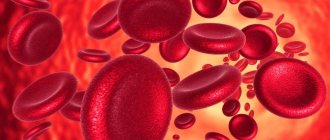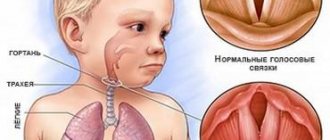- February 20, 2019
- Pregnancy
- Valeria Valeria
Iron plays an important role in the body of a woman expecting a child. Its deficiency threatens anemia or anemia. This is a pathological condition in which oxygen starvation occurs for mother and child.
More than half of women face this problem during pregnancy. The disease requires long-term systematic treatment. Iron deficiency cannot be ignored. This threatens with serious consequences for both the expectant mother and the fetus. The difficulty of treating anemia is that women are not recommended to use medications during pregnancy. Many medications are simply contraindicated for expectant mothers. That is why the question of selecting the most suitable and effective means, which is important, arises.
Among several iron supplements for pregnant women, the list of which is quite long, it is worth choosing the medicine that will eliminate the problem as soon as possible and will not harm the health of the woman and the unborn baby. When making an appointment, all details must be taken into account. Only a doctor can tell you which iron supplements are best for pregnant women.
How does iron deficiency occur?
Under normal conditions, the expectant mother's body should contain about five milligrams of iron. Most of the necessary substance, namely 65%, is contained in hemoglobin, about 35% - in the internal organs: liver, kidneys, spleen. A small portion of iron is contained in myoglobin, blood serum and tissue enzymes.
During menstruation, the fair sex loses about thirty milligrams of this element. And this takes into account the fact that a woman’s body absorbs only twenty with food. This is how iron deficiency, anemia, occurs.
To prevent the disease, it is necessary to take iron supplements, which are antianemic and homeopathic remedies that saturate the body with the missing substance. These same medications are used to treat and prevent anemia.
Methods of introducing iron into the body: pros and cons
Often, pregnant women are prescribed oral iron supplements. These are medicines containing metal salts. They are well absorbed in the intestines, but failure to comply with the exact dose leads to tissue oversaturation with the element. The main side effects of this group of medications are disruption of the digestive process. Intestinal problems occur in a third of women taking the drug. Irritation of the mucous membrane occurs, manifested by pain, and brown stool.
All drugs taken orally have the same side effects - indigestion. Pregnant women complain about:
- lack of appetite,
- heaviness in the epigastrium,
- abdominal pain,
- bloating,
- nausea,
- vomiting
For drugs administered intravenously or intramuscularly, the most dangerous side effect is the ability to cause anaphylactic shock. Therefore, before the first injection, all pregnant women undergo a drug tolerance test. The advantage of parenteral administration is the ability to quickly enrich the body with the missing microelement.
Iron deficiency in pregnant women
Iron for pregnant women is an essential element that is necessary to maintain the well-being of the expectant mother and the normal development of the fetus and placenta.
As pregnancy progresses, blood circulation increases, as a result of which by the final, third trimester, the concentration of iron in the body decreases greatly. During childbirth, a woman loses about another hundred and fifty milligrams of a vital mineral. And during the lactation period, its consumption is approximately four hundred milligrams.
As a result, it turns out that during pregnancy and breastfeeding, a representative of the fair sex loses more than a thousand milligrams of iron. Unfortunately, it is impossible to compensate for the mineral deficiency with the help of a special diet. That is why you cannot do without drugs. The mineral norm for pregnant women is 27 grams per day. It is very important that the required amount enters the body every day.
Anemia is divided into several types depending on the severity:
- light;
- average;
- heavy;
- extremely heavy.
In addition, anemia can be iron deficiency, aplastic and hemolytic.
Most pregnant women suffer from iron deficiency anemia. It can act as an independent disease or be a symptom of another pathology.
From the middle of the second semester, from about 20-22 weeks of pregnancy, iron deficiency is diagnosed in almost every woman. Gestational anemia is detected using a complete blood count.
Vitamins to take in the first trimester of pregnancy
Which prenatal vitamins to choose depends directly on your gestational age. At different stages of bearing a child, the needs of the female body for certain substances are not the same. The 1st trimester is extremely important; during this period, the baby’s main organs are formed, the embryo’s spine and nerve cells are formed.
In order for this process to go smoothly, gynecologists and obstetricians recommend starting to take multivitamins even before conceiving a child - of course, if the pregnancy is planned. But immediately after conception, as soon as it is confirmed, it is not too late to start taking multivitamins for pregnant women.
pros
- They contain folic acid, also known as vitamin B9, and should be supplied in a volume of at least 0.4 mg per day. It is advisable to start taking it several months before the expected conception and continue taking it throughout the 1st trimester. Folic acid protects against miscarriages in the first weeks and the remaining pregnancy, participates in the formation of the placenta, is responsible for the transmission of correct genetic information, prevents the development of iron deficiency anemia, stimulates intensive cell division and plays a leading role in the formation of the fetal neural tube. The dosage and duration of taking B9 is determined by the doctor depending on the condition of the pregnant woman and the fetus.
- The presence of vitamin E, also known as tocopheron, is necessary for the successful creation of the placenta and the prevention of miscarriage in the first weeks after conception. It is also better to start taking it even before fertilization, as it affects the production of sex hormones and promotes successful conception.
- The presence of vitamin A. It is drunk in the first and last trimester; in the second, these vitamins are not needed additionally for pregnant women, provided there are no pathologies. The maximum daily dose of this substance is 2500 IU. If the dosage is exceeded, the baby may develop heart defects while still in the womb. But vitamin A deficiency also leads to problems with vision, bones, and the nervous system. Therefore, you need to carefully monitor the use of this substance.
Minuses
- Some vitamin complexes are quite expensive.
- With long-term use, certain elements can be addictive.
- Not all women believe that they need to take any supplements at all during pregnancy.
- Not all complexes can be taken throughout pregnancy.
Even with a balanced and nutritious diet, a pregnant woman receives only half of the daily dose of necessary substances from foods - but even this amount is not completely absorbed. Therefore, in the first trimester of pregnancy, it is recommended to additionally take such multivitamins for pregnant women.
Symptoms of anemia in pregnant women
Anemia during pregnancy may be accompanied by the following symptoms:
- pale skin;
- constant weakness;
- increased fatigue;
- fainting conditions;
- muscle weakness;
- headache, tinnitus, dizziness;
- sudden and frequent mood changes;
- dry skin;
- change in the condition of the nails;
- hair loss;
- tachycardia;
- dyspnea;
- changes in the functioning of taste buds.
The pathology may be asymptomatic. In this case, a general blood test will indicate iron deficiency in the body.
Why is anemia dangerous?
Many women, being in an interesting situation, needlessly underestimate iron deficiency. But low hemoglobin can cause a lack of oxygen in the cells of the whole body. And oxygen starvation can lead to dangerous consequences:
- Toxicosis (early and late). The latter is the most dangerous for both the baby and the woman herself, because it can end in death;
- Disturbances in fetal development;
- Miscarriage and premature birth;
- Bleeding and blood loss during childbirth;
- Low immunity in the child in the future;
- Lack and low quality of breast milk in a woman in labor.
To reduce the risk to a minimum and avoid unpleasant consequences, you must strictly follow your doctor’s recommendations and start taking iron supplements for pregnant women on time, if they are prescribed. Symptoms of anemia during pregnancy There are three stages in the development of iron deficiency:
- I degree – mild – hemoglobin level is 110-91 g/l;
- II degree – average – hemoglobin level is 90-81 g/l;
- III degree – severe – hemoglobin level is less than 80 g/l.
Most often, expectant mothers experience the first stage of the disease. It is characterized by an almost asymptomatic course. The expectant mother often attributes mild malaise and slight pallor to the ubiquitous toxicosis. And this is very dangerous, because it is best to prevent further development of anemia at this stage. Therefore, it is extremely important early on, upon learning about pregnancy, to register with the antenatal clinic and take the tests prescribed by the doctor on time. A routine general blood test, taken on time, will show a decrease in hemoglobin levels, and the doctor will be able to prescribe treatment in a timely manner. II and III degrees of anemia are characterized by more pronounced symptoms:
- Frequent pain in the head, dizziness and floaters flying before the eyes;
- Weakness, lethargy, excessive sleepiness and reluctance to do anything;
- Increased fatigue, decreased concentration, memory and attention;
- Paleness and dryness of the skin and mucous membranes;
- Brittle nails and hair;
- Decreased appetite, change in taste;
- Frequent heartbeat;
- Disturbance (dysfunction) of the intestines.
Causes of anemia in pregnant women
Anemia in pregnant women can occur for various reasons, which can be divided into 3 groups. The first group is associated with an insufficient supply of a vital mineral to a woman’s body or, conversely, with an increased consumption of iron. The causes of anemia in this case may be food restrictions, exclusion of any foods from the daily diet, vegetarianism, as well as intensive growth, increased physical activity, and breastfeeding. Pregnancy also falls into this group.
The second category of reasons includes disruption of absorption processes in the intestine. The body receives a sufficient amount of iron, but the necessary mineral does not enter the blood. This phenomenon can be caused by resection of the stomach, intestines, gastritis and dysbacteriosis.
And finally, the third group of reasons includes heavy blood loss, which can be caused by excessive menstruation, uterine bleeding, and hematuria. This also includes blood donation and blood loss as a result of pathology of the gastrointestinal tract. The third category also includes uterine fibroids and endometriosis.
Most often in practice there are cases of anemia caused by reasons from the first group. During pregnancy, it is very difficult to determine the exact nature of the origin of the disease, since the use of most diagnostic methods during this period is prohibited.
Daily iron requirement
The daily requirement of iron, that is, how many milligrams of iron a person should receive every day, is different and depends on age, gender and the physiological state of the body.
| Floor | Age | Daily value (mg/day) |
| Babies | Up to 6 months | 0,27 |
| Babies | 7-12 months | 11 |
| Children | 1-3 years | 7 |
| Boys | 14-18 years old | 11 |
| Men | 19 years and older | 8 |
| Girls | 14-18 years old | 15 |
| Women | 19-50 years old | 18 |
| Women | Over 50 years old | 8 |
| Pregnant women 1st trimester | 15 | |
| Pregnant women 2nd trimester | 20-30 | |
| Pregnant women 3rd trimester | 33-35 |
As can be seen from the table, women require an order of magnitude more iron than men. This is easily explained by the fact that every month with menstruation a woman loses a portion of blood, and with blood - iron.
It is also clear why older women in menopause no longer need such an amount of iron and their daily requirement is compared with a man.
Pregnant women also need slightly less iron in the first trimester than menstruating women, but as the fetus grows, iron requirements increase sharply. In addition, the body strives to create an iron reserve for the upcoming blood loss during childbirth and a long period of lactation.
Iron supplements
Iron supplements for pregnant women may have different names. But all drugs of this type are of two types: ionic and non-ionic. The first type of medicine is more suitable for the human body. They quickly penetrate the intestinal mucosa and from there enter the bloodstream, enriching the liquid tissue of the internal environment of the human body. The second group of drugs is absorbed somewhat worse by the body of a pregnant woman, especially if the fair sex has increased acidity of gastric juice.
Depending on the composition, iron preparations are divided into single-component, which contain exclusively salts of the necessary mineral, and multi-component, which, in addition to iron, contain acids and trace elements. Additional components promote better absorption and reduce the likelihood of side effects.
Iron-based medicines come in fast-acting and long-acting forms. Doctors strongly recommend choosing the second type of drugs, as they gradually increase the concentration of iron in the body, and the results of taking the drugs last for a long time. Moreover, the second group of iron-containing drugs is less likely to cause side effects.
In any pharmacy you can find at least ten types of iron supplements for pregnant women. Everyone has different names. However, the spectrum of action for most is identical.
Sources of iron
There are two types of iron:
- Heme
- contained in hemoglobin and is well absorbed by the body; - Non-heme
– found in plants and iron-containing preparations. This type of iron is less easily absorbed by our body and is needed in much larger quantities.
Thus, the “useful” iron available to our body is not found in iron supplements, but in animal products. The record holders for iron content are:
- By-products: liver, spleen, heart;
- Horsemeat;
- Rabbit meat;
- Beef;
From plant sources we can note:
- Chocolate;
- Pomegranate;
- Spinach;
- Buckwheat;
- Beans;
- Oatmeal.
It is important to remember that iron can be absorbed by the body only in tandem with certain vitamins and microelements:
- Vitamin C (ascorbic acid);
- Folic acid;
- B vitamins (especially B6 and B12).
That is why nutrition should be complete and balanced.
What iron supplements can pregnant women take? The most effective drugs
Of all the existing iron supplements for pregnant women, only a few have good reviews. It is worth noting several of the safest and most effective medications. The use of the following medications can be prescribed by a gynecologist or therapist not only to treat anemia, but also to prevent anemia:
- "Sorbifer";
- "Ferlatum";
- "Malthofer Fall";
- "Totem";
- "Hemofer."
It is imperative to consult with a specialist before starting to take any iron supplement for pregnant women. Names from the list of drugs should not be chosen randomly, but according to indications.
"Sorbifer Durules"
"Sorbifer Durules" is an iron supplement during pregnancy. Reviews about the medicine are very good. The average rating on a five-point scale is 3.9.
The components of the drug are ferrous sulfate and ascorbic acid. The latter promotes better absorption of iron and is involved in the formation of hemoglobin.
The product is available in the form of tablets in cardboard packaging of thirty and fifty pieces. The drug does not need to be chewed, just wash down the contents of the blister with water. A huge advantage of the drug is the fact that the contents of the tablets do not stain the teeth, unlike many similar medications.
Doctors usually prescribe Sorbifer Durules during the second and third trimesters of pregnancy. This drug can be prescribed by a gynecologist in case of multiple pregnancy, when there is a high probability of heavy blood loss during delivery.
You need to take Sorbifer Durules one tablet 2 times a day immediately after meals. The maximum permissible daily dosage of the drug is 200 milligrams. The exact regimen for taking iron tablets for pregnant women is prescribed by the doctor after receiving the results of a blood test.
With proper treatment, the result becomes noticeable three weeks after starting to take the drug. The hemoglobin level increases noticeably, the patient's condition improves, and the symptoms of anemia disappear.
Doctors do not recommend combining the medication with foods and medications containing large amounts of calcium. The interval between doses should be at least 2 hours. Contraindications to the use of Sorbifer Durules are stenosis of the esophagus, metabolic disorders and acute gastrointestinal diseases.
Treatment of anemia
When you contact us about deterioration in health, the doctor will definitely check a blood test. There are different degrees of anemia depending on the concentration of hemoglobin. Mild, ranges from 90-110 g/l, average from 70-90, severe - below 70. The condition is dangerous for the development of the fetus; due to a deficiency of nutrients and oxygen, intrauterine growth retardation, hypoxia, and the threat of miscarriage can occur.
Treatment takes a long period of time, and an increase in levels is observed after 2 months of taking medications. In addition to iron-containing preparations, additional vitamins and microelements are prescribed. In addition, a pregnant woman is recommended to follow a special diet to increase the intake of an important mineral.
When receiving results with a low hemoglobin level, only a doctor can prescribe medications and calculate a treatment regimen. It is not recommended to choose medications without a prescription on your own.
"Ferlatum"
"Ferlatum" is a medicine that is guaranteed not to cause problems with the digestive system. Pregnant women should not worry about constipation. According to reviews, the best iron supplement for pregnant women is Ferlatum. The main advantages of the product are the absence of toxic substances in the composition, as well as a pleasant berry taste. Iron supplements for low hemoglobin in pregnant women act quite quickly. In this case, the medicine does not have any effect on the digestive organs and does not disrupt intestinal function.
The manufacturer did not stop at the achieved result and moved on. The drug “Ferlatum Fol” was developed, the component of which, in addition to iron, is folinic acid (a derivative of folic acid). It allows iron to be better absorbed in the body of a pregnant woman, accelerating the effect of the product. In addition, this component helps prevent anemia and is involved in the construction of hemoglobin and hematopoiesis.
What can interfere with the absorption of iron from food?
It is important not only the amount of microelement supplied with food, but also the ability to be absorbed in the body. There are a combination of foods and medications that reduce this function. There are two types of iron-containing products - plant and animal origin. The former contain non-heme iron, the latter - heme. The microelement from plant foods is absorbed by 2-3%, heme iron is absorbed in an amount of 10-20%. The process of assimilation is influenced by various factors.
- Oversaturation with iron leads to poor absorption by the digestive system.
- Poorly absorbed by people suffering from diseases of the digestive tract.
- Alcohol destroys iron molecules in foods.
Reduce microelement intake:
- dairy products,
- phytic acid contained in legumes, bran,
- tannins found in tea, coffee, tart fruits (blueberries, quince, persimmon).
Plants containing oxalic acid (sorrel, cabbage, spinach) have a negative effect on the absorption of the microelement. Chocolate, nuts, and chicken eggs inhibit the absorption of the element.
Note! When compiling a menu for a pregnant woman suffering from anemia, you need to take into account the interaction of products and their ability to influence the supply of iron.
"Maltofer Fall"
A combined iron preparation for pregnant women includes a polymaltose complex of this element and vitamin B9. "Maltofer Fol" is used for the prevention and treatment of anemia during pregnancy and breastfeeding. The dosage of the drug, which is daily, is determined by the attending physician or gynecologist who is managing the pregnancy. The specialist takes into account the characteristics of the female body, the condition of the pregnant woman, as well as the degree of anemia and existing symptoms. The optimal dose of medication for a pregnant woman is one tablet three times a day with meals.
Beneficial properties of vitamins with iron during pregnancy
Iron is a building block of many proteins and enzymes. Its main functions include transporting hemoglobin to vital organs and regulating its level. If a pregnant woman’s body stops receiving the required amount of iron, her health worsens. On this basis, serious pathologies may develop in the future.
The microelement enters the human body as part of food. Its deficiency most often occurs when the diet is insufficiently varied. During pregnancy, the need for the substance increases. In such cases, taking a vitamin supplement is indicated.
The beneficial properties of iron include:
- ensuring the correct formation of the child’s hematopoietic system;
- maintaining optimal hemoglobin levels in women;
- increasing resistance to viruses and infections;
- maintaining thyroid function;
- strengthening the immune system;
- destruction of peroxide oxidation products;
- participation in the process of formation of the nervous system;
- control over systemic and cellular metabolism;
- ensuring proper formation of brain cells.
At each stage of pregnancy, vitamins with iron perform different functions. In the first trimester, the element takes part in the formation of important organs. In addition, it is needed to ensure adequate blood supply to the uterus as a result of its intensive growth. Blood volume during this period increases by 40%. After the 32nd week of an interesting situation, the need for vitamins begins to decrease. This is due to the fact that hemoglobin is already produced physiologically. During labor, significant blood loss occurs, as a result of which the woman’s body weakens. In this case, the need to take vitamin supplements becomes even more urgent.
At each stage of pregnancy, the need for iron is different. To activate metabolism and increase hemoglobin levels, 300-500 mg is required. Complete construction of the placenta can be ensured by a dosage of 100 mg. To meet a child’s need for a microelement, it is necessary to take at least 300-400 mg of iron. At the stage of increasing the volume of the uterus, the female body needs 50 mg daily.
When eating meat, a person is able to absorb only 20% of iron
Vitamins "Totem"
It is a brown solution with a characteristic odor of iron. The medicine is taken orally. The drug also contains copper and manganese, additional components. Doctors consider Totem vitamins the best iron supplement for pregnant women. Thanks to its unique composition, this element is absorbed faster into the body and performs its functions.
To prevent anemia, one capsule per day is enough. The duration of the course of taking the drug is determined by the doctor, taking into account the nuances of the pregnancy, the particular condition of the expectant mother, as well as the degree of anemia.
Functions of iron in the body
Iron is not synthesized, so it needs to be supplied from outside. Deficiency and excess are reflected in well-being. Iron ions are involved in important body functions. The most famous are transport and metabolic. In the first case, iron molecules ensure the synthesis of hemoglobin, a blood protein found in red blood cells that binds to oxygen. Then the blood cells deliver oxygen molecules through the vessels to all organs, providing nutrition to the tissues. The waste oxygen is then collected in the form of carbon dioxide and transported to the lungs. The respiratory process at the cellular level is impossible without iron.
Iron is actively involved in redox reactions. It has the ability to change valence and release free electrons in biological oxidation reactions. The released energy is necessary for energy metabolism. Iron ions are able to bind toxins entering the body and remove them. Participates in the synthesis of DNA chains, stimulates the growth and development of the child, increases overall immunity, ensures the normal functioning of the thyroid gland, gives a healthy appearance to the skin, hair, and nails.
Information! The modern diet does not adequately meet the body's daily requirement for iron. You can compensate for microelement deficiency by consuming biological supplements containing iron.
"Hemofer"
The main advantage of Hemofer is its cost. It does not exceed one hundred rubles per package of thirty tablets. Despite the relatively low price, the effectiveness of the drug is in no way inferior to more expensive analogues.
The main component of the drug is ferric chloride tetrahydrate. Doctors prescribe Hemofer for the treatment of anemia and for the prevention of the disease. The medication prevents the development of the disease in the unborn child.
"Hemofer" is completely safe for both the expectant mother and the child. The drug relieves the symptoms of anemia and normalizes the functioning of the cardiovascular system.
The dosage and duration of taking the drug is determined by the attending physician or gynecologist. The specialist takes into account the characteristics of pregnancy, the woman’s condition, as well as the degree of anemia. As a rule, treatment lasts at least two months. During this time, the hemoglobin level returns to normal, the patient’s condition improves significantly, and the symptoms of anemia disappear.
Contraindications to the use of Hemofer are intolerance to one or more components of the drug, as well as the presence of anemia not associated with iron deficiency or impaired absorption.
It is better to take the drug as prescribed by your doctor. Self-medication is not recommended. This may cause side effects such as nausea, vomiting, stomach discomfort, diarrhea, or constipation. The appearance of these symptoms is possible when the dosage is increased without the instructions of a qualified specialist.
Pharmacological properties
The active ingredient in Hemofer is ferric chloride tetrahydrate. Its concentration in one tablet is 157 mg, which corresponds to 44 mg of pure iron. Once in the gastrointestinal tract, the drug is absorbed in the small intestines and then accumulates in the liver. When treated with Hemofer, an iron depot is created in the body. Due to the increase in the concentration of the microelement, hemoglobin synthesis increases, and its level gradually returns to normal.
How to choose iron supplements during pregnancy
It is very important to take the drug correctly. Even the best medicine containing the required daily intake of iron will be of little effectiveness if the drug is taken incorrectly.
Do not forget that the appropriate remedy must be selected in strict accordance with all the symptoms and characteristics of the course of pregnancy. The severity of anemia must also be taken into account. Only a doctor can handle this task. Therefore, self-medication and choosing your own medicine is strictly not recommended. This is fraught with side effects or lack of results.
It is better to give preference to tablets coated with a protective coating. They irritate the gastrointestinal tract less and are characterized by a minimal number of side effects.
It is best to take medications with plain water. Tea, coffee and other drinks are not suitable because they interfere with the absorption of the drug. You should not combine taking tablets with antibiotics, since many of them reduce the absorption of iron molecules in the gastrointestinal tract. The interval between doses should be at least 2 hours.
Pregnant women need to remember that treating anemia is a rather lengthy process. Typically it takes about two months. In some cases (especially severe ones) it may take much longer. You should not stop even in cases where hemoglobin has already reached its normal level.
As a rule, when iron levels are normalized, the doctor prescribes the expectant mother another course of iron supplementation with a reduced dosage. This is necessary to maintain hemoglobin levels and prevent the formation of repeated deficiency.
Characteristics of some drugs
To saturate the body with iron, eating foods containing it alone is not enough. It is necessary to additionally take medications containing molecules of this microelement. There are inexpensive pills available that can boost your iron levels. Suspensions and solutions cost more. The cost of the solution produced in ampoules intended for injections is even higher. The usual course of treatment is on average 2-3 months. The doctor decides how to treat anemia.
If there is no anemia yet, but the iron level is reduced, then you can increase its amount by using a vitamin complex containing a microelement. This combination is effective in the presence of external signs of Fe deficiency, as well as mild fatigue and decreased activity. To eliminate mild anemia, you can take dietary supplements containing iron.
Medicines are available in different forms. The most popular are tablets. In second place are suspensions and syrups. Injections of liquid iron are indicated for pregnant women as a last resort. When taking a medicine orally causes irritation of the mucous membranes, dyspeptic disorders, to quickly increase the content of a microelement in the blood of moderate or severe anemia.
Treatment with “iron” of any form is indicated from the second trimester, that is, the 4th month, until the end of pregnancy.
Totema
The drug contains iron gluconate, manganese, copper. This includes additional components. The product is classified as an antianemic drug because it contains a complex of microelements that promote hematopoiesis. Available in the form of a dark brown transparent solution with a specific odor, taken orally.
Pregnant women are prescribed as a prophylactic agent. The drug does not affect the body of the mother and the unborn child. Proven by test studies conducted on female volunteers. For prevention purposes, it is prescribed to drink an ampoule per day. The product is dissolved in clean water, juice, tea, and drunk (coffee or fortified drinks are not used) before meals so as not to reduce the effect of the medicine. There are no data on the results of using the drug during lactation. The use of the medicine during this period is prescribed according to vital signs.
It is important to know! When taking medications with iron, you should conduct a blood test every three months to determine the average volume of red blood cells and the saturation of iron stores.
Sorbifer Durules
This drug includes ferrous sulfate, ascorbic acid. Increases the absorption of iron in the intestines. The product is available in tablets. The manufacturing technology ensures a prolonged action; the release of iron ions occurs gradually until the tablet is completely dissolved. The release time of the molecules is 6 hours. Sorbifer is used not only for the prevention, but also for the treatment of anemia. The drug is prescribed in a dose of 2 tablets. Divided into two doses. Drink the medicine whole, do not chew it, and wash it down with clean water. The dose is taken half an hour before meals.
Sorbifer treatment is recommended for pregnant women after consulting a doctor, although the drug has been proven to be harmless during pregnancy. The drug is prescribed 1 tablet once a day in the 1st and 2nd trimester. In the third period of lactation, 1 tablet is prescribed twice a day. The maximum course of therapy is six months.
Fenyuls
The product consists of a vitamin complex (pyridoxine, nicotinamide, vitamin C, riboflavin, thiamine), pantothenic acid, ferrous sulfate. It is important for pregnant women to take vitamins and iron to prevent anemia. The vitamin complex not only replenishes reserves of useful substances, but also raises serum iron levels by enhancing absorption. You can take the medicine from the 14th week of pregnancy. If it is necessary to start taking it earlier, the appointment is made by a doctor, taking into account the benefits and harms of the upcoming therapy. The product is produced in capsules that need to be taken with food. But there is no need to chew the medicine. It should be swallowed whole.
Note! During pregnancy, the daily dose of the medicine is 1 capsule. The course of treatment is 14 days, then an interval is made (7 days) and treatment is resumed.
Maltofer
The drug is classified as a new drug that is well tolerated by patients and has a minimum of adverse reactions. The product is produced in syrup, solution, chewable lozenges and drops. The active ingredients of the drug are ferric iron and polymaltosate. "Maltofer" helps eliminate the symptoms of anemia and prevent its development. Pregnant women are prescribed the drug in the second and third trimester. Since the medicine has not been tested on women during pregnancy, it is used as a last resort, given the degree of anemia. If the drug must be taken during breastfeeding, it is recommended to stop breastfeeding.
The daily dose of the drug is 25 - 100 mg, depending on the degree of iron deficiency.
Ferrum lek
Injection solution administered intramuscularly. The medicine is released in tablet form. The drug contains a complex of ferric iron and dextran hydroxide. The presented complex is an analogue of the physiological iron compound in the human body. Prescribed when there is no result after taking tablets.
It is important to know! After administration of the drug, the patient should be under the supervision of a physician for at least half an hour. Such precaution is necessary due to the ability of the drug to cause severe allergic reactions, including anaphylactic shock.
The list of side effects of the drug is quite long, so the medicine is administered only if iron deficiency anemia is confirmed by clinical studies. Treatment of pregnant women is carried out according to vital indications, when the therapeutic effect of therapy is higher than the risk of complications. The dose is calculated only by the doctor, depending on the patient’s weight and the degree of microelement deficiency. A table with the dosage of the drug is provided in the instructions, but the doctor selects the amount of the drug administered individually for each patient.









